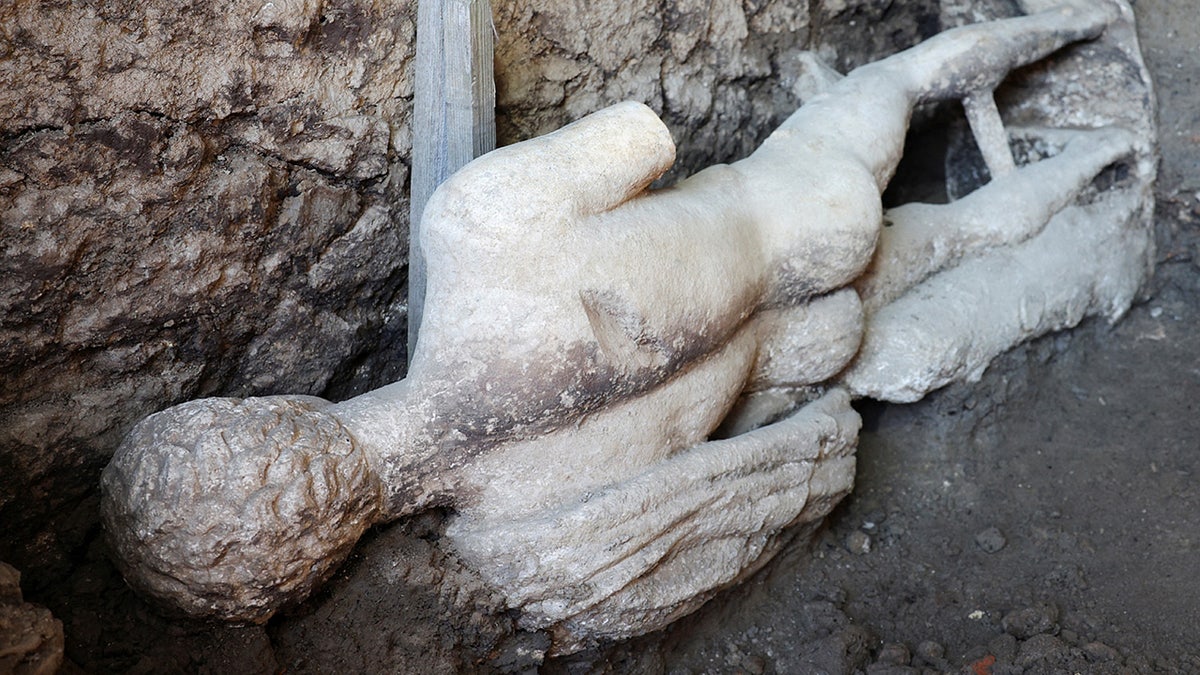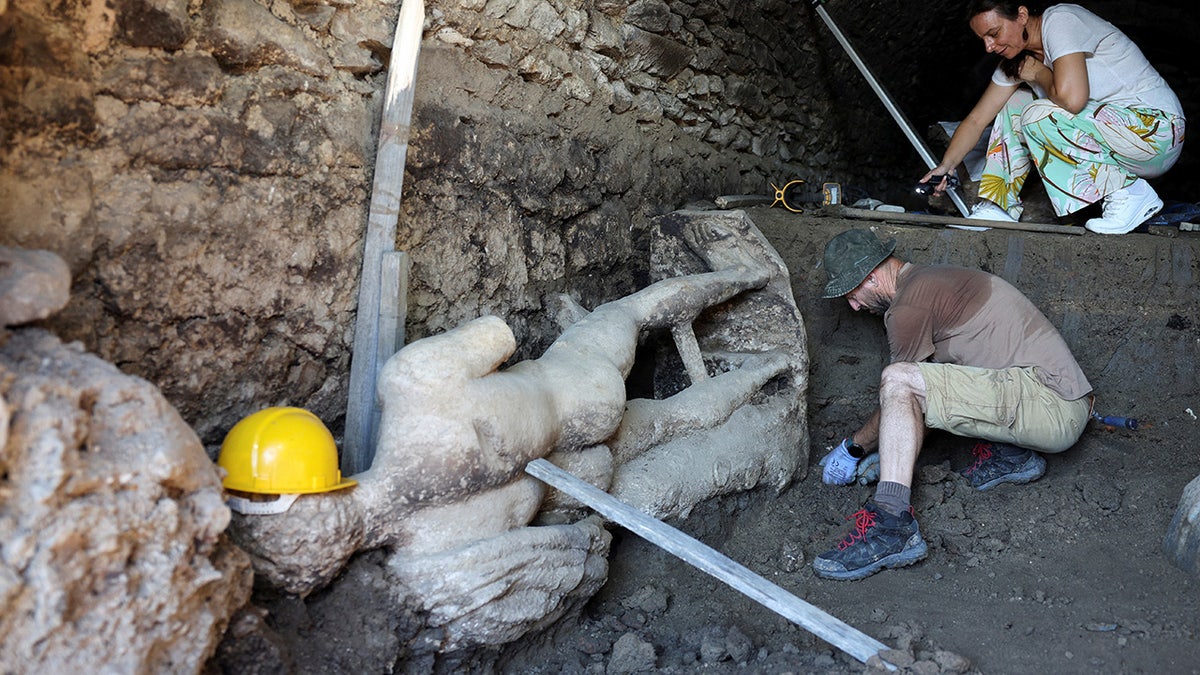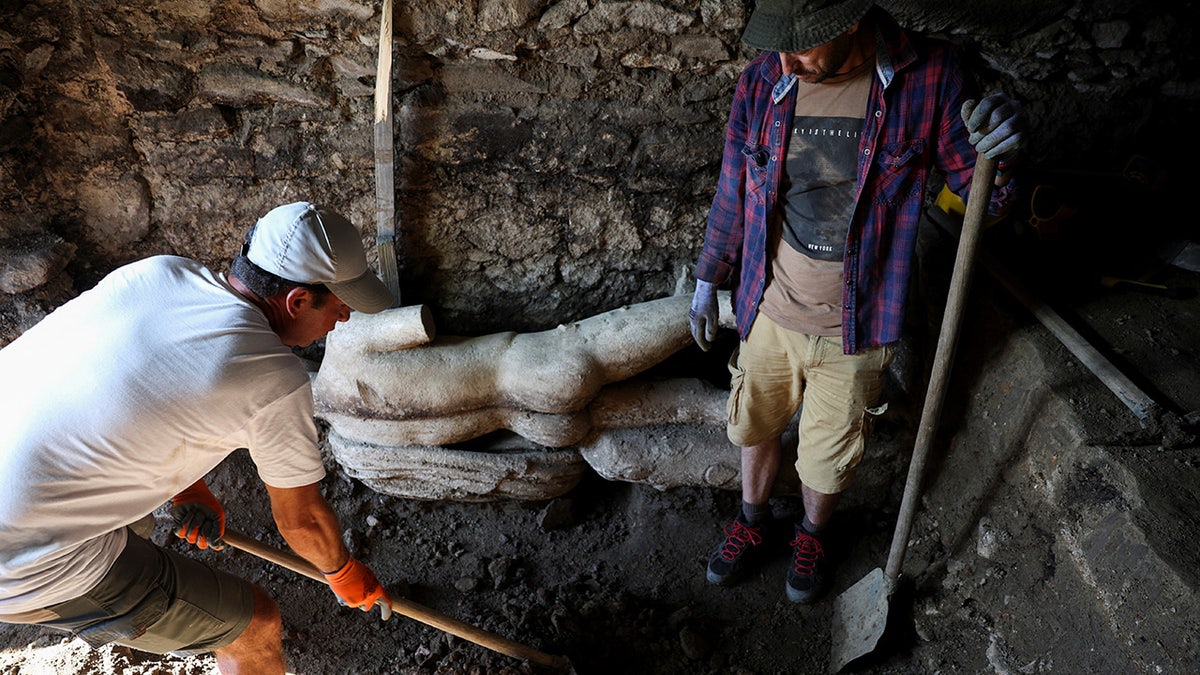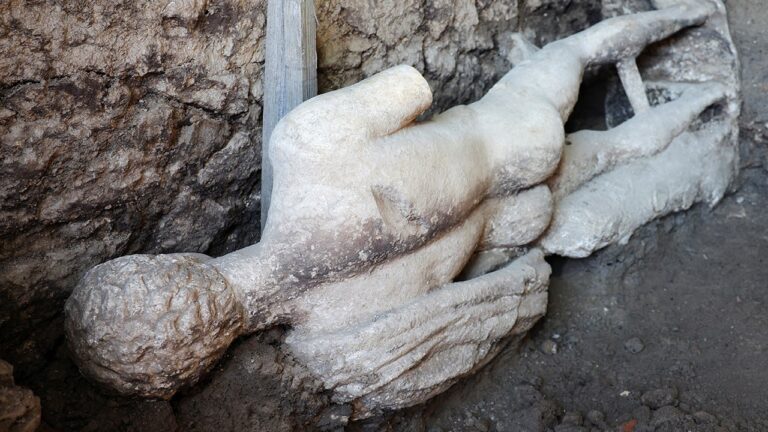Archaeologists nearby Bulgaria’s southeastern border with Greece has yielded a nearly 2-metre-high statue of the ancient Greek god Hermes during an excavation this week.
The unexpected discovery occurred during the excavation of a ancient roman sewer in the abandoned city of Heraclea Sintica, founded by King Philip II of Macedon between 356 and 339 BC.
The sprawling city was devastated by an earthquake in 388 AD
DIVERS DISCOVER ‘HIDDEN TREASURES’ ON EXPEDITION TO ANCIENT AND STRANGE WRECK

Archaeologists near Bulgaria’s southeastern border with Greece have discovered a nearly two-metre-high statue of the ancient Greek god Hermes during an excavation this week. (Reuters/Spasiyana Sergieva)
“His head is preserved. (It is) in very good condition,” said chief archaeologist Lyudmil Vagalinski, explaining that the marble statue had been placed in the sewers and covered with earth, perhaps because Christianity had been adopted as the official religion of the Roman Empire and pagan symbols were banned.

The statue was discovered during an excavation in the ancient city of Heraclea Sinitica, near what is now the village of Rupite, Bulgaria. (Reuters/Spasiyana Sergieva)
He added that the statue was a Roman copy of an ancient Greek original.
“Everything pagan was forbidden, and they joined the new ideology,” Vagalinski said.
He added: “But apparently they took care of their ancient deities.”
ARCHAEOLOGISTS SURPRISED BY ‘INTRIGANT’ ARTWORK DRAWN BY CHRISTIAN PILGRIMS 1,500 YEARS AGO

The statue was well preserved, archaeologists said. (Reuters/Spasiyana Sergieva)
CLICK HERE TO GET THE FOX NEWS APP
Heraclea Sintica, today the Bulgarian village of Rupite, was abandoned around 500 AD after experiencing a rapid decline following an earthquake.


